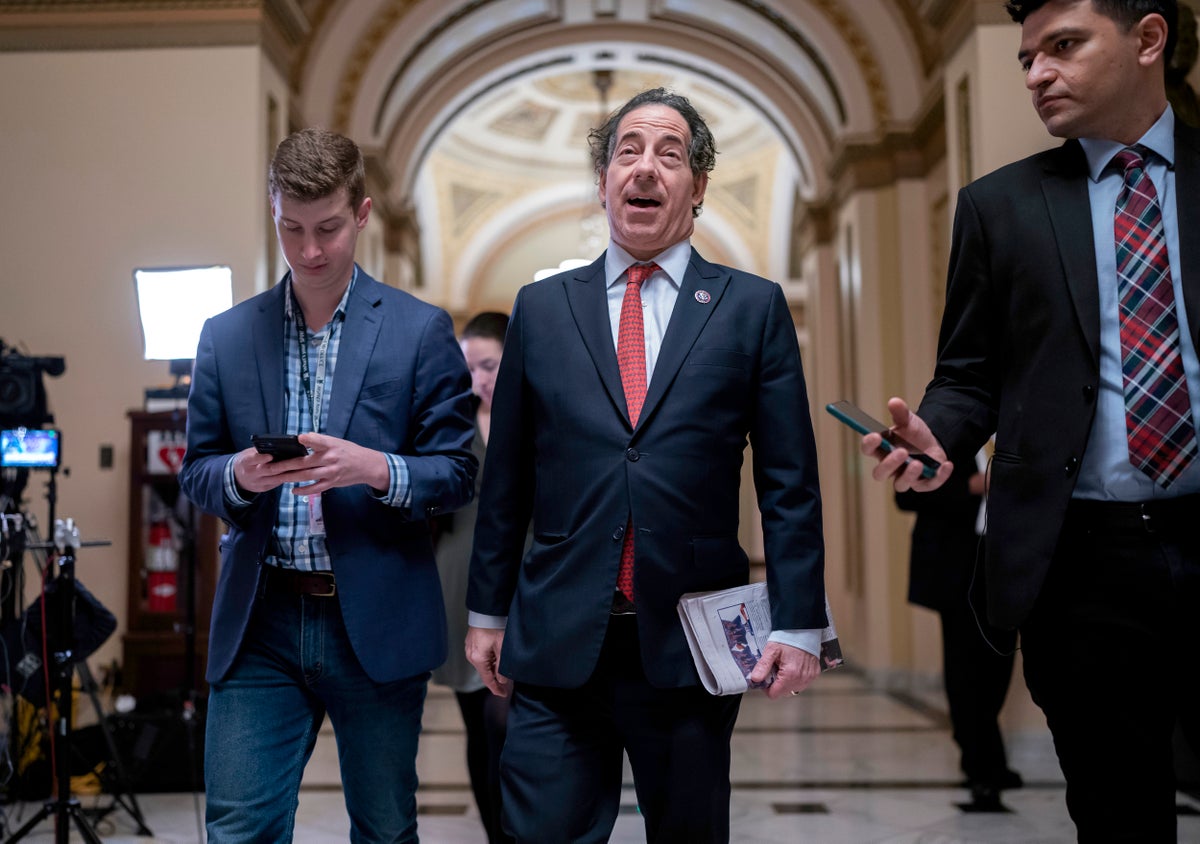
Congressman Jamie Raskin blamed the US Electoral College for the growing mistrust and dissatisfaction with America’s election systems in an interview on Sunday.
The Democratic member of the House’s January 6 panel was being interviewed on CBS’s Face the Nation following the release of his committee’s full report on the attack on the US Capitol and broader effort by the Trump campaign to overturn the lawful results of the 2020 election.
During the interview, he spoke about the need to “renovate” and regularly update American institutions of power to work efficiently in the modern era.
“How so?” responded interviewer and host Margaret Brennan.
“The Electoral College now, which has given us five popular vote losers as president in our history, twice in this century alone, has become a danger — not just to democracy, but to the American people,” said Mr Raskin.
“It was a danger on January 6,” he added.
Mr Raskin then said that the US should embrace a popular vote system for the sake of the stability of American democracy: “There are so many curving byways and nooks and crannies in the Electoral College, that there are opportunities for a lot of strategic mischief. We should elect the president the way we elect governors, senators, mayors, representatives, everybody else: whoever gets the most votes wins.”
Supporters of a national popular vote have campaigned for such a reform for decades. A transition to a popular vote system could happen in either of two ways, both of which would require a significant political effort: a Constitutional amendment, or through legislation that would only take effect if a coalition of states totalling a majority of the votes in the Electoral College signed on.
That second effort is already underway, with a number of blue states including California and New York joining the compact. But it still would require a number of red and/or purple states to sign on before reaching the necessary threshold.
Opponents of a popular vote system argue that it would marginalise smaller states in presidential campaigns while giving greater significance to larger population centres. Supporters of the idea contend that residents of those population hubs are marginalised themselves already by the existing system, which narrows the presidential campaigning field (typically) to a handful of battleground states.
Mr Raskin’s home state of Maryland passed legislation joining the National Popular Vote Compact in 2007, pledging its 10 Electoral College votes to the cause.
The January 6 panel including Mr Raskin released its final report about the attack on the Capitol to the public on Thursday. The report detailed much of the committee’s previously-publicised findings as well as new information suggesting that Donald Trump actively sought/is seeking to intimidate or otherwise coerce witnesses against testifying to the Department of Justice, January 6 House committee, and grand jury investigation in Fulton County, Georgia.







